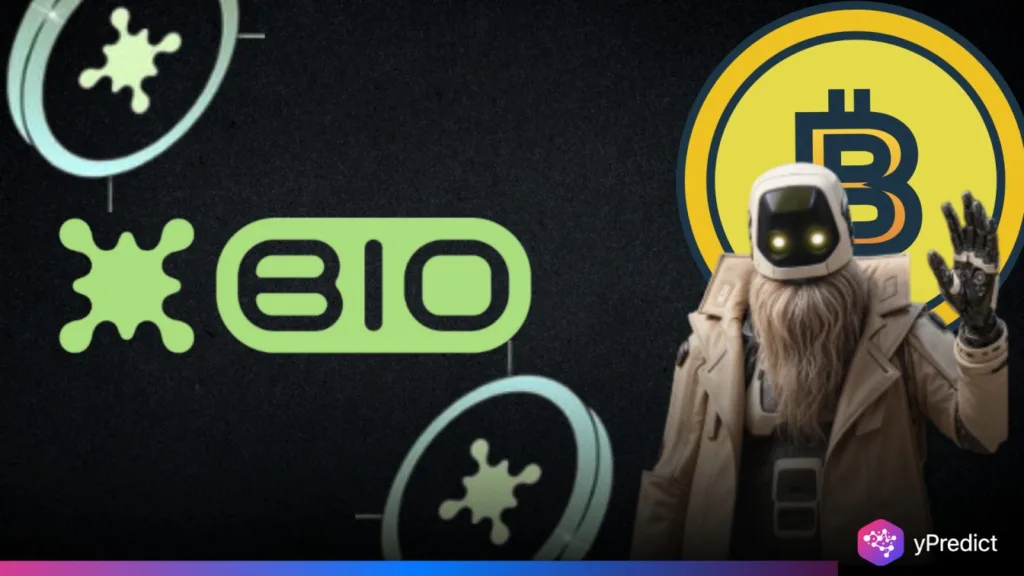
BioProtocol has announced the closing of a $6.9 million funding round. A testament to increasing trust in the decentralised science (DeSci) space. The round was led by CryptoHayes and Maelstrom Fund. These are two prominent investors in the blockchain and crypto space. With the new funds, BioProtocol will accelerate its mission to transform the scientific process through the use of artificial intelligence. As well as blockchain infrastructure and transparent market mechanisms.
The vision is ambitious. It is to create a whole new infrastructure to run science faster, share it openly, and reward it fairly. Without the waste and gatekeeping that can make traditional research ecosystems so frustrating.
BioProtocol’s Vision: Reimagining the Internet of Science
At the core of BioProtocol’s mission is a radical concept. To build what its supporters call the “Internet of Science.” Today’s scientific apparatus is often derided as slow. As well as bureaucratic and hamstrung by institutional bottlenecks. Funding is controlled by a handful of gatekeepers. Publications are hidden behind paywalls. And researchers find it difficult to receive credit for work outside of the traditional paper.
BioProtocol imagines dismantling these walls by creating a networked ecosystem of knowledge and contributors. In such a system, discoveries, data, and innovations would be transparent, interoperable. The platform will remain openly accessible. And it will compensate researchers and innovators directly for their efforts, democratizing science funding and performance. As well as commercialised, potentially enabling faster breakthroughs in medicine, climate science and more.
How BioProtocol Plans to Use AI, Crypto, and New Tools
BioProtocol is building a set of protocols that leverage the best of AI and blockchain to transform the practice of science. At the heart of this endeavour are BioAgents, sophisticated AI systems that function as “co-scientists.” These are agents that help researchers run experiments, analyse data, and speed up the understanding of complex results. Combining the know-how of a human expert with the speed of machine intelligence, BioAgents could reduce the long wait from ideas to breakthroughs.
With AI, BioProtocol is also creating on-chain funding markets for researchers to raise capital directly, without institutional gatekeepers. So that non-traditional ideas can get a fair shot. It also brings tamper-proof knowledge streams to openly share research and reward contributors. To round out the system, BioProtocol is creating on-chain intellectual property instruments. This is to facilitate licensing and accelerate the commercialisation of discoveries.
Investor Backing and Growing Community Momentum
The $6.9 million raise is notable not only for its size but also for the investors involved. CryptoHayes, a prominent figure in the crypto industry, and Maelstrom Fund, known for backing disruptive blockchain projects, add both credibility and expertise to BioProtocol’s vision.
Their participation reflects growing confidence in DeSci. It is a field that has exploded from fringe talks to one of the most talked-about convergences of science and blockchain. In addition to investors, BioProtocol is attracting interest from academic scientists, entrepreneurs and open-science advocates.
Proponents say the project’s success will demonstrate that bureaucracy no longer hinders scientific discoveries. Or trapped in silos, but rather propelled by open collaboration and transparent markets.
Closing Thoughts
The $6.9 million raise for BioProtocol is a significant advancement for the decentralised science movement. Supported by heavyweight investors and community hype, the project aims to tear down the old walls in research. And replace them with AI-assisted tools, transparent on-chain markets, and equitable incentive structures.
If it works as planned, BioProtocol will change how researchers make, share, and commercialize discoveries. Leading to an open, speedy, and equitable future for science. The real challenge is now to come. To convert a compelling vision into a reliable ecosystem for scientists, innovators, and society.





